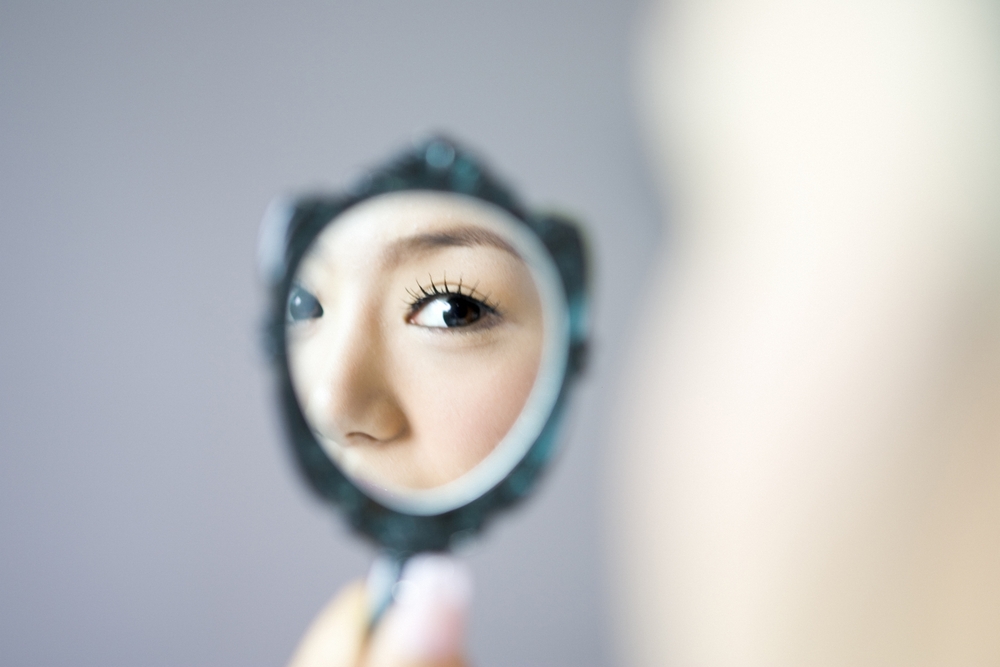
Scientists are finding that gazing at one’s reflection in the mirror without an agenda reduces stress, anxiety and depression and increases self-compassion. Next month, Visionary Circle member and psychologist Dr. Tara Well will lead a sold-out workshop at the Rubin Museum, bringing Mirror Meditation to visitors in the Museum galleries. Here, she tells us more about this emerging practice.
Our Brainwave series is focused on emotions. How can we benefit from understanding our emotions better?
We live in a culture that often values thinking over feeling. When we are unaware of our emotions, we don’t have the power to change them, or take responsibility for them. Sometimes we project our unrecognized emotions onto others ““ this creates drama that eventually helps us realize how we are really feeling. In this way, we use our relationships as mirrors for our emotions. When you are aware of your own emotions, you can relate to others more mindfully, and stay in the present moment ““ which is the only place something new can happen!
Tell us a little about Mirror Meditation and what makes it unique.
Some traditional forms of meditation involve gazing on a fixed point, known as a drishti. If you are a visual person, you may find that focusing on a still point makes it much easier to stay present than closing your eyes. In mirror meditation, you are your own focal point, and of course much more complex than a spot on the wall. Seeing your own image can evoke emotions and memories more readily than fixed gaze meditation. Your mind may drift but it always comes back to you in the mirror. Through mirror meditation, you come to realize that there is really no escape from yourself. If you do the mirror meditation regularly, you will confront yourself —your thoughts, emotions, hopes, and fears ““ seeing yourself actually experience these emotions can be incredibly transformative. You see your own joy and suffering and it evokes self-compassion.
What is your advice for someone interested in meditation but unsure about it?
So much research is coming out on the benefits of meditation ““ anyone who wants to reduce stress, increase their concentration, and enjoy a greater sense of well-being should try it.
At first, you may feel uncomfortable with sitting in stillness and “doing nothing.” This is a normal reaction ““ most of us are in a constant state of doing and have forgotten how to be still. We feel the urge to fill up each moment with some thought or activity. Meditation is all about resting in stillness ““ letting emotions and thoughts pass by in your mind like clouds in the sky. In this place of stillness, we can refresh and revive ourselves. Under the surface chatter, there is always a calm center within us.
Why might meditating in a museum be exciting, beneficial, or unique?
I think meditating in a museum allows people to access the stillness within, to transcend time, and to experience the sacred in ways that ordinary environments cannot.
How did you get involved with the Rubin Museum and the Visionary Circle?
I love the Brainwave series ““ such a wonderful idea to bring artists and scientists together to discuss the great questions of our time. Over the years, I have watched in awe as you steadily build a vibrant community of fascinating people who care deeply about culture and education. I wanted to be a part of it.
What makes the Rubin special?
I love the Rubin ““ it brings the sublime and human together ““ it is a wonderful place to experience the beauty and sacredness of many forms of great art in a friendly, welcoming atmosphere. I am delighted to be part of this vibrant community.
Dr. Well will lead the upcoming Mirror Meditation, part of Brainwave: Emotion. Find upcoming Brainwave events or learn more about joining the Visionary Circle to get involved.

